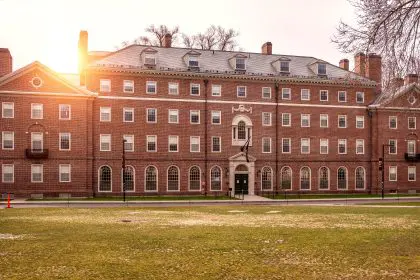Parole offers a second chance for those released from prison, but it comes with strict rules and expectations. Unfortunately, many parolees unknowingly or knowingly violate the conditions of their release, leading to severe consequences. Understanding how and why these violations occur can shed light on an issue that affects communities, families and those striving to reintegrate into society.
Failing mandatory drug tests
One of the most common ways parolees find themselves back behind bars is by failing a mandatory drug test. For many individuals who have struggled with addiction before incarceration, the temptation to relapse is significant. The transition from prison to freedom is often stressful, and some turn to substances as a way to cope.
Most parole agreements strictly prohibit any use of drugs or alcohol. A positive drug test can result in the immediate revocation of parole and may lead to additional criminal charges or a return to prison.
Parolees are often required to undergo random drug tests, and the surprise element is meant to discourage any use of banned substances. Still, many find themselves caught in the cycle of addiction, struggling to stay clean while trying to adjust to their new lives.
Associating with other parolees or felons
When someone is released on parole, they are often prohibited from associating with known felons or other parolees. This rule aims to keep them away from potential negative influences that could hinder their rehabilitation. However, this restriction is easier said than done.
Many parolees find themselves returning to neighborhoods or communities where other formerly incarcerated individuals live, and it can be challenging to avoid contact entirely. The bond between individuals who have been through the criminal justice system together is often strong, and for some, reconnecting with old friends or acquaintances seems harmless.
Whether it’s attending a social gathering or simply bumping into someone from their past, associating with other parolees can lead to serious repercussions and potential revocation of their parole status.
Missing curfew or failing to maintain a residence
Another way many people break their parole is by failing to adhere to a curfew or by not maintaining an approved residence. Parole officers enforce curfews to ensure parolees are off the streets during certain hours, usually at night. This restriction is meant to reduce the risk of reoffending, but it can be difficult for parolees who work odd hours, have family responsibilities or face transportation challenges.
Additionally, maintaining an approved residence can be more difficult than it sounds. Parolees may face housing discrimination, financial struggles or family issues that make it hard to keep a stable living situation. Those who are unable to afford rent or who are evicted can quickly find themselves homeless. This instability is often grounds for parole violation, even if the individual was actively trying to find a suitable home.
Failing to report to a parole officer
A critical aspect of a parolee’s journey back into society is maintaining regular contact with their parole officer. Regular check-ins are designed to monitor progress, provide support and ensure the individual is following all the rules laid out in their parole agreement. Missing an appointment or failing to report at the scheduled time, for any reason, can lead to serious violations.
Sometimes, parolees miss these appointments due to unavoidable circumstances, like work obligations, transportation issues or family emergencies. In some cases, fear or anxiety about a potential parole violation, such as a failed drug test or curfew breach, can lead to avoiding contact with the officer.
No matter the reason, missing a scheduled meeting is viewed as a breach of trust and a disregard for the terms of parole, which often leads to consequences ranging from a warning to arrest and detention.
Leaving the state without permission
The freedom of movement that most people take for granted is heavily restricted for those on parole. Leaving the state, even for family emergencies or job opportunities, without the express permission of the parole officer is considered a violation of parole. This rule is in place to ensure that the parolee is continuously monitored and supervised within the jurisdiction that oversees their rehabilitation.
Even a brief day trip across state lines without prior approval can lead to a breach of parole conditions. Many parolees violate this rule because they don’t realize how strict the travel restrictions are or because they underestimate the consequences of leaving their area without permission.
The repercussions can be severe, as unauthorized travel is often seen as an attempt to evade supervision and avoid the responsibilities tied to parole.
Breaking parole can lead to life-altering consequences that affect not only the individual but also their families and communities. Whether it’s failing a drug test, associating with the wrong crowd, missing curfew, neglecting to report to a parole officer or leaving the state without permission, these seemingly minor violations can escalate quickly.
For parolees, staying aware of these pitfalls and seeking help when needed is crucial. For communities, offering support, resources and understanding can make a huge difference in ensuring these individuals have the best chance for a fresh start. Understanding these ways people break their parole can open up a deeper conversation about how we can support those transitioning from incarceration to a better future.
This story was created using AI technology.










